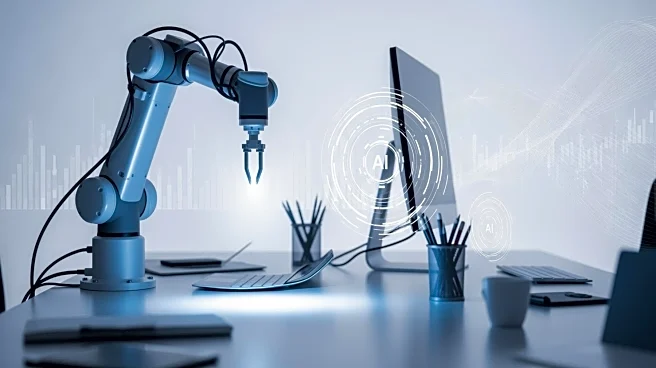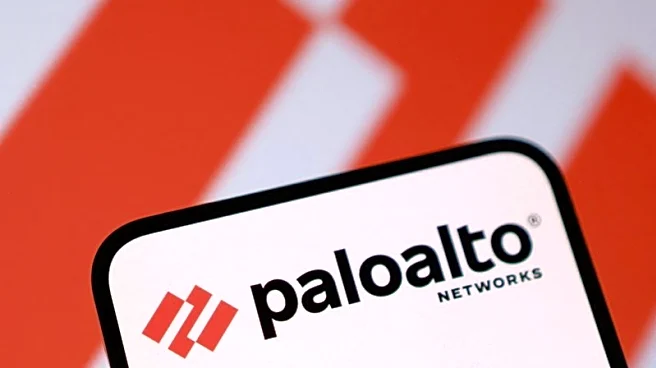What's Happening?
The integration of AI technologies in various industries is leading to significant job losses and operational challenges. Workers from different sectors, including graphic design, copywriting, and social
media management, have reported being replaced by AI systems. For instance, a graphic designer shared an experience where AI-generated content was favored over human-created designs, leading to frustration among the team. Similarly, a copywriter lost their job as AI took over tasks like writing ad copy and web pages. In the insurance industry, AI systems are being used to automate policy generation and fraud detection, resulting in layoffs and increased workloads for remaining employees. These changes have led to a loss of experienced staff and operational inefficiencies, as AI systems struggle with complex tasks that require human judgment.
Why It's Important?
The shift towards AI-driven operations is reshaping the job market and industry practices. While AI offers cost savings and efficiency, it also poses risks such as reduced job opportunities and potential legal challenges due to errors in automated processes. Industries that rely heavily on human expertise, like insurance fraud detection, are experiencing setbacks as AI systems fail to match the nuanced understanding of experienced professionals. This transition highlights the need for a balanced approach to AI integration, ensuring that human skills are not undervalued and that AI systems are adequately supervised to prevent costly mistakes. The broader impact includes potential economic disruptions and a reevaluation of workforce skills and training needs.
What's Next?
As AI continues to evolve, industries may face increased regulatory scrutiny to address the ethical and operational challenges posed by automation. Companies might need to invest in retraining programs to help displaced workers transition to new roles. Additionally, there could be a push for developing AI systems that complement rather than replace human workers, fostering a collaborative environment that leverages the strengths of both. Stakeholders, including policymakers and industry leaders, will likely engage in discussions to create frameworks that balance innovation with job security and ethical considerations.
Beyond the Headlines
The rise of AI in the workplace raises ethical questions about the value of human labor and the responsibility of companies to their employees. As AI systems become more autonomous, there is a risk of dehumanizing work environments and prioritizing efficiency over employee well-being. This trend could lead to a cultural shift in how work is perceived and valued, potentially affecting societal norms and expectations around employment and career development. Long-term, the integration of AI may necessitate a reevaluation of economic models and social safety nets to support those affected by technological displacement.










